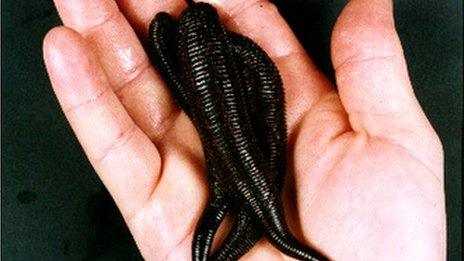NHS at 70: Viagra to leeches, how Wales advanced medicine
- Published

Since the launch of the NHS 70 years ago, there have been rapid advances in treatments and medicines to save and improve lives - and different methods of developing them.
Here is a look at some of the surprising ways Wales has contributed to medical innovation around the world.
Viagra
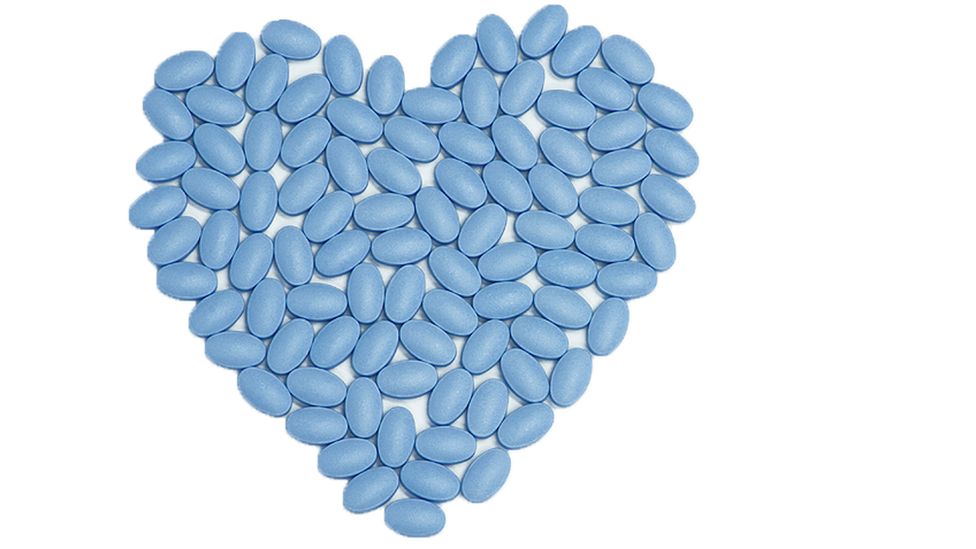
As well as being the birthplace of the NHS, the (ahem) far-reaching potential of what was then known simply as sildenafil was first spotted in Wales - at a clinical research facility in Merthyr Tydfil.
In 1993, a clinical trial into a potential heart drug threw up an unexpected result.
The male volunteers - thought to be former miners - were asked an open question about any "other effects" they had experienced.
Millions around the world were to benefit from their honesty - the drug was developed as a treatment for impotence and Viagra became one of the most prescribed drugs in the world.
It has been used to treat other illnesses such as pulmonary hypertension, saving the lives of many babies, and there is now further research into whether it can help combat rare brain cancers.
Dr David Brown, one of the co-inventors of Viagra, said he would like to get in contact with the Merthyr volunteers - whom he never met - if they were willing, because of the impact they had across the world.
"They made history - they probably were just desperate to earn a bit of income but they've made a big difference to many people's lives and they should feel good about that.
"If our research in cancer proves correct I think that good to humanity is going to expand massively in the next 10 years or so."
Jellyfish
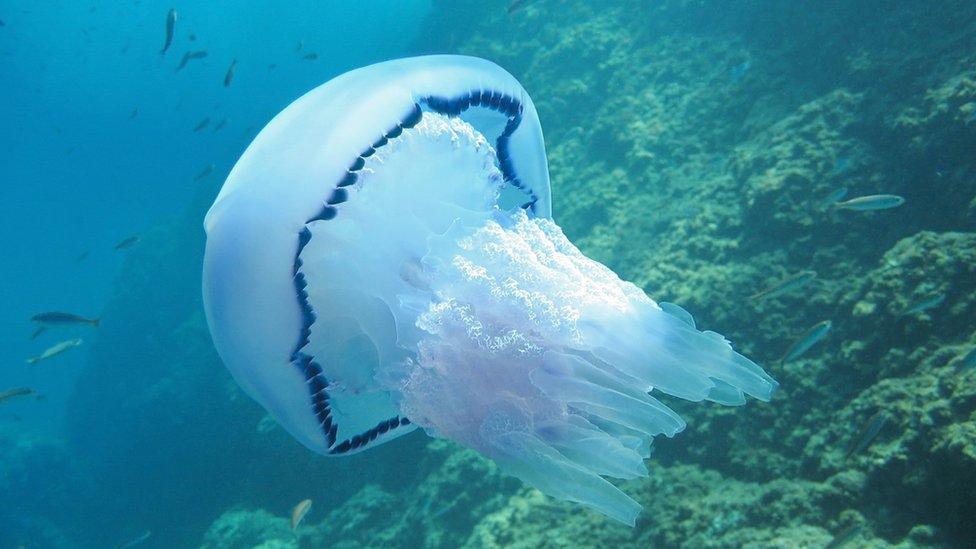
Jellyfish may seem an unlikely source of human healing but they are contributing to scientific advances.
Wales-based company Jellagen has created a business by harvesting the marine creature off the coast of Pembrokeshire. It uses them to create collagen products medical researchers can use, mainly aimed at the regenerative medicine market.
3D-printed implants
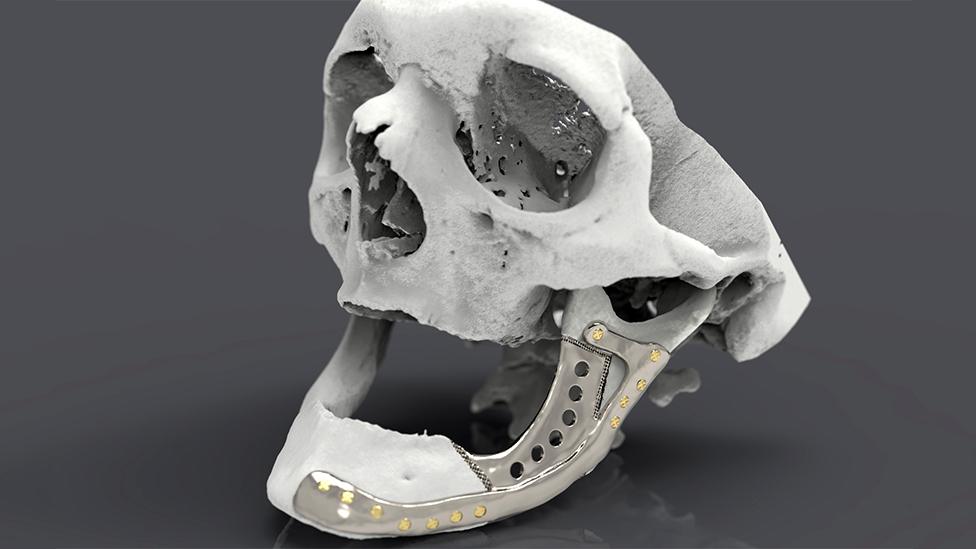
Using 3D printing, Cardiff Metropolitan University's PDR research consultancy worked with surgeons at Morriston Hospital in Swansea to develop tailor-made implants for facial and cranial reconstruction - for example replacing a jaw bone.
Now they have developed software so surgeons can cut out the middleman and design each individual implant themselves before sending it off to be printed.
They also print a replica of the patient's skull (pictured) so they can practise the specific procedure before they operate.
Now the PDR team are in the early stages of applying similar technology to preparing for spinal operations.
'Hubble telescope' of brain scanners
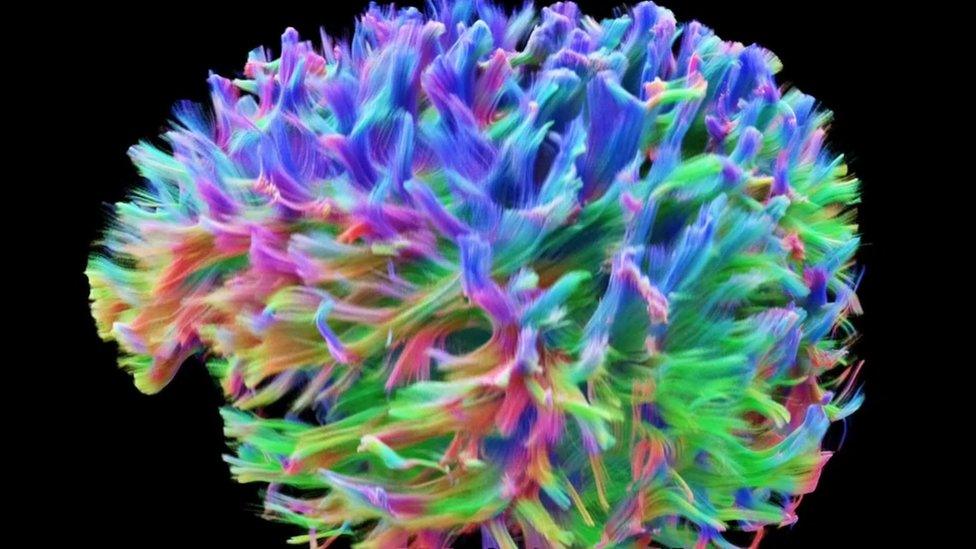
This image of the brain was produced at Cardiff University by a "Connectom" scanner. It is a special type of MRI scanner and one of only three in the world, putting the city at the forefront of research into neurological conditions including MS, schizophrenia, dementia and epilepsy.
The scanner can map the brain's axons - effectively wires - which are so thin it would take 50 of them to match the thickness of a human hair.
Prof Derek Jones, CUBRIC's director, said it was like getting hold of the Hubble telescope when you've been using binoculars.
"The promise for researchers is that we can start to look at structure and function together for the first time," he said.
The return of leeches
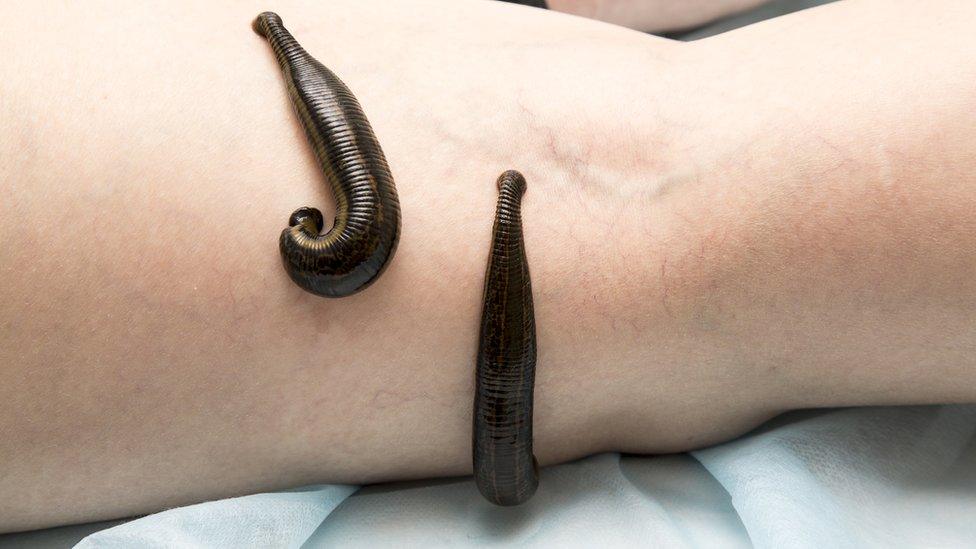
As plastic surgery medical journal PMFA dryly noted: "Patient acceptance is sometimes a barrier to [leech] therapy, particularly when sensitive regions of the body are involved."
Two hundred years ago Wales claimed to be the leech-farming capital of Europe but medical leech use dropped off in the early 1900s.
Now they are back and used for reconstructive surgery worldwide thanks to the anti-clotting properties of their saliva.
There is also ongoing research into whether they can help relieve the symptoms of osteoarthritis.
Thankfully the women of Wales are no longer expected to wander barefoot around puddles on the mudflats of Pembrokeshire and Gwent to "collect" leeches on their ankles - they are now cultivated in laboratory.
Biopharm in Hendy, Carmarthenshire, supplies 60,000 leeches to hospitals throughout Europe, making it one of the UK's biggest suppliers.
- Published3 July 2017
- Published13 August 2013
